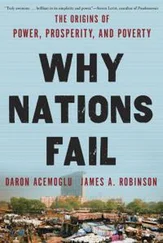Adam Smith - Wealth of Nations
Здесь есть возможность читать онлайн «Adam Smith - Wealth of Nations» — ознакомительный отрывок электронной книги совершенно бесплатно, а после прочтения отрывка купить полную версию. В некоторых случаях можно слушать аудио, скачать через торрент в формате fb2 и присутствует краткое содержание. Жанр: unrecognised, на английском языке. Описание произведения, (предисловие) а так же отзывы посетителей доступны на портале библиотеки ЛибКат.
- Название:Wealth of Nations
- Автор:
- Жанр:
- Год:неизвестен
- ISBN:нет данных
- Рейтинг книги:4 / 5. Голосов: 1
-
Избранное:Добавить в избранное
- Отзывы:
-
Ваша оценка:
- 80
- 1
- 2
- 3
- 4
- 5
Wealth of Nations: краткое содержание, описание и аннотация
Предлагаем к чтению аннотацию, описание, краткое содержание или предисловие (зависит от того, что написал сам автор книги «Wealth of Nations»). Если вы не нашли необходимую информацию о книге — напишите в комментариях, мы постараемся отыскать её.
Adam Smith's masterpiece, first published in 1776, is the foundation of modern economic thought and remains the single most important account of the rise of, and the principles behind, modern capitalism. Written in clear and incisive prose, The Wealth of Nations articulates the concepts indispensable to an understanding of contemporary society.
Wealth of Nations — читать онлайн ознакомительный отрывок
Ниже представлен текст книги, разбитый по страницам. Система сохранения места последней прочитанной страницы, позволяет с удобством читать онлайн бесплатно книгу «Wealth of Nations», без необходимости каждый раз заново искать на чём Вы остановились. Поставьте закладку, и сможете в любой момент перейти на страницу, на которой закончили чтение.
Интервал:
Закладка:
The government of towns corporate was altogether in the hands of traders and artificers, and it was the manifest interest of every particular class of them to prevent the market from being overstocked, as they commonly express it, with their own particular species of industry, which is in reality to keep it always understocked. Each class was eager to establish regulations proper for this purpose, and, provided it was allowed to do so, was willing to consent that every other class should do the same. In consequence of such regulations, indeed, each class was obliged to buy the goods they had occasion for from every other within the town, somewhat dearer than they otherwise might have done. But in recompense, they were enabled to sell their own just as much dearer; so that so far it was as broad as long, as they say; and in the dealings of the different classes within the town with one another, none of them were losers by these regulations. But in their dealings with the country they were all great gainers; and in these latter dealings consists the whole trade which supports and enriches every town.
Every town draws its whole subsistence, and all the materials of its industry, from the country. It pays for these chiefly in two ways: first, by sending back to the country a part of those materials wrought up and manufactured; in which case their price is augmented by the wages of the workmen, and the profits of their masters or immediate employers; secondly, by sending to it a part both of the rude and manufactured produce, either of other countries, or of distant parts of the same country, imported into the town; in which case, too, the original price of those goods is augmented by the wages of the carriers or sailors, and by the profits of the merchants who employ them. In what is gained upon the first of those two branches of commerce consists the advantage which the town makes by its manufactures; in what is gained upon the second, the advantage of its inland and foreign trade. The wages of the workmen, and the profits of their different employers, make up the whole of what is gained upon both. Whatever regulations, therefore, tend to increase those wages and profits beyond what they otherwise would be, tend to enable the town to purchase, with a smaller quantity of its labour, the produce of a greater quantity of the labour of the country. They give the traders and artificers in the town an advantage over the landlords, farmers, and labourers in the country, and break down that natural equality which would otherwise take place in the commerce which is carried on between them. The whole annual produce of the labour of the society is annually divided between those two different sets of people. By means of those regulations a greater share of it is given to the inhabitants of the town than would otherwise fall to them; and a less to those of the country.
The price which the town really pays for the provisions and materials annually imported into it is the quantity of manufactures and other goods annually exported from it. The dearer the latter are sold, the cheaper the former are bought. The industry of the town becomes more, and that of the country less advantageous.
That the industry which is carried on in towns is, everywhere in Europe, more advantageous than that which is carried on in the country, without entering into any very nice computations, we may satisfy ourselves by one very simple and obvious observation. In every country of Europe we find, at least, a hundred people who have acquired great fortunes from small beginnings by trade and manufactures, the industry which properly belongs to towns, for one who has done so by that which properly belongs to the country, the raising of rude produce by the improvement and cultivation of land. Industry, therefore, must be better rewarded, the wages of labour and the profits of stock must evidently be greater in the one situation than in the other. But stock and labour naturally seek the most advantageous employment. They naturally, therefore, resort as much as they can to the town, and desert the country.
The inhabitants of a town, being collected into one place, can easily combine together. The most insignificant trades carried on in towns have accordingly, in some place or other, been incorporated, and even where they have never been incorporated, yet the corporation spirit, the jealousy of strangers, the aversion to take apprentices, or to communicate the secret of their trade, generally prevail in them, and often teach them, by voluntary associations and agreements, to prevent that free competition which they cannot prohibit by bye-laws. The trades which employ but a small number of hands run most easily into such combinations. Half a dozen wool-combers, perhaps, are necessary to keep a thousand spinners and weavers at work. By combining not to take apprentices they can not only engross the employment, but reduce the whole manufacture into a sort of slavery to themselves, and raise the price of their labour much above what is due to the nature of their work.
The inhabitants of the country, dispersed in distant places, cannot easily combine together. They have not only never been incorporated, but the corporation spirit never has prevailed among them. No apprenticeship has ever been thought necessary to qualify for husbandry, the great trade of the country. After what are called the fine arts, and the liberal professions, however, there is perhaps no trade which requires so great a variety of knowledge and experience. The innumerable volumes which have been written upon it in all languages may satisfy us that, among the wisest and most learned nations, it has never been regarded as a matter very easily understood. And from all those volumes we shall in vain attempt to collect that knowledge of its various and complicated operations, which is commonly possessed even by the common farmer; how contemptuously soever the very contemptible authors of some of them may sometimes affect to speak of him. There is scarce any common mechanic trade, on the contrary, of which all the operations may not be as completely and distinctly explained in a pamphlet of a very few pages, as it is possible for words illustrated by figures to explain them. In the history of the arts, now publishing by the French Academy of Sciences, several of them are actually explained in this manner. The direction of operations, besides, which must be varied with every change of the weather, as well as with many other accidents, requires much more judgment and discretion than that of those which are always the same or very nearly the same.
Not only the art of the farmer, the general direction of the operations of husbandry, but many inferior branches of country labour require much more skin and experience than the greater part of mechanic trades. The man who works upon brass and iron, works with instruments and upon materials of which the temper is always the same, or very nearly the same. But the man who ploughs the ground with a team of horses or oxen, works with instruments of which the health, strength, and temper, are very different upon different occasions. The condition of the materials which he works upon, too, is as variable as that of the instruments which he works with, and both require to be managed with much judgment and discretion. The common ploughman, though generally regarded as the pattern of stupidity and ignorance, is seldom defective in this judgment and discretion. He is less accustomed, indeed, to social intercourse than the mechanic who lives in a town. His voice and language are more uncouth and more difficult to be understood by those who are not used to them. His understanding, however, being accustomed to consider a greater variety of objects, is generally much superior to that of the other, whose whole attention from morning till night is commonly occupied in performing one or two very simple operations. How much the lower ranks of people in the country are really superior to those of the town is well known to every man whom either business or curiosity has led to converse much with both. In China and Indostan accordingly both the rank and the wages of country labourers are said to be superior to those of the greater part of artificers and manufacturers. They would probably be so everywhere, if corporation laws and the corporation spirit did not prevent it.
Читать дальшеИнтервал:
Закладка:
Похожие книги на «Wealth of Nations»
Представляем Вашему вниманию похожие книги на «Wealth of Nations» списком для выбора. Мы отобрали схожую по названию и смыслу литературу в надежде предоставить читателям больше вариантов отыскать новые, интересные, ещё непрочитанные произведения.
Обсуждение, отзывы о книге «Wealth of Nations» и просто собственные мнения читателей. Оставьте ваши комментарии, напишите, что Вы думаете о произведении, его смысле или главных героях. Укажите что конкретно понравилось, а что нет, и почему Вы так считаете.












